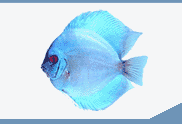

 |
||||||||||||
 |
||||||||||||
| Columnaries Disease | ||||||
| Page 3 of 3 | Pages: 1 . 2 . 3 | |||||
Treatment of Columnaris External columnaris can be treated with potassium permanganate at a concentration of 2 parts per million (ppm) for 8--10 hours. This concentration will cause the water to be wine red in color. If the color fades to yellowish-brown in less than 4 hours, it may be necessary to retreat. In a tank, potassium permanganate can be used at a slightly higher concentration, but fish must be observed during the treatment. As much as 10 ppm can be used for a short term bath of 30--60 minutes. Fish must be watched closely, and water should be changed immediately if they show signs of stress. Following treatment, a complete water change is necessary to avoid gill damage. Formalin is not a treatment of choice for an external bacterial infection such as columnaris, although it does an excellent job against parasitic problems. Fish which have systemic infections must be treated with antibiotics. The most effective method of administering antibiotics to fish is in the feed or by injection. For food fish, the only approved antibiotic which is effective against columnaris is Terramycin, an oxytetracycline compound. Bacteria such as Aeromonas have a tendency to develop resistance to oxytetracycline, resulting in ineffective treatment if they are part of the problem, therefore it is very important that bacterial identification and antibiotic sensitivity testing be run. Terramycin is fed for 10 days as a sinking feed, and has a mandatory 21-day withdrawal time. The withdrawal time is the number of days fish must be held, without being sold, after feeding the drug for the last time. Prevention of Columnaris Columnaris disease has caused problems for fish farmers for many years. It is not easy to control, and because the disease is related to stress, an effort to identify and correct the source of the problem is necessary to prevent excessive or chronic mortalities. Fish are particularly vulnerable to columnaris following handling and transport. Abrasion from nets, crowding, and adverse water quality conditions during transport create a situation which is very conducive to columnaris outbreaks. Routine preventive treatment with potassium permanganate when fish are moved may be a means of minimizing losses to this disease. -------------------------------------------------------- Footnotes 1. This document is FA-11, one of a series of the Department of Fisheries and Aquatic Sciences, Florida Cooperative Extension Service, Institute of Food and Agricultural Sciences, University of Florida First published: August 1988. Revised: December 1998. Please visit the EDIS Web site at http://edis.ifas.ufl.edu. 2. Ruth Francis-Floyd, Extension Veterenarian, Fisheries and Aquatic Sciences, Cooperative Extension Service, Institute of Food and Agricultural Sciences, University of Florida, Gainesville, 32611. -------------------------------------------------------- The Institute of Food and Agricultural Sciences is an equal opportunity/affirmative action employer authorized to provide research, educational information and other services only to individuals and institutions that function without regard to race color, sex, age, handicap, or national origin. For information on obtaining other extension publications, contact your county Cooperative Extension Service office. Florida Cooperative Extension Service / Institute of Food and Agricultural Sciences / University of Florida / Christine Taylor Waddill, Dean -------------------------------------------------------- Copyright Information This document is copyrighted by the University of Florida, Institute of Food and Agricultural Sciences (UF/IFAS) for the people of the State of Florida. UF/IFAS retains all rights under all conventions, but permits free reproduction by all agents and offices of the Cooperative Extension Service and the people of the State of Florida. Permission is granted to others to use these materials in part or in full for educational purposes, provided that full credit is given to the UF/IFAS, citing the publication, its source, and date of publication. 
SimplyDiscus.com gratefully thanks the Florida Cooperative Extension Service for permission to use this article. Please visit them at http://edis.ifas.ufl.edu/ |
 |
|||||
| About Us :: Message Board :: Chat | |||||
| Library :: Photo Gallery :: Links & Resources :: Breeders & Sponsors :: Merchandise | |||||
| Website designed by: EthanCote.com | © 2001-2004, SimplyDiscus.com. All Rights Reserved. | ||||